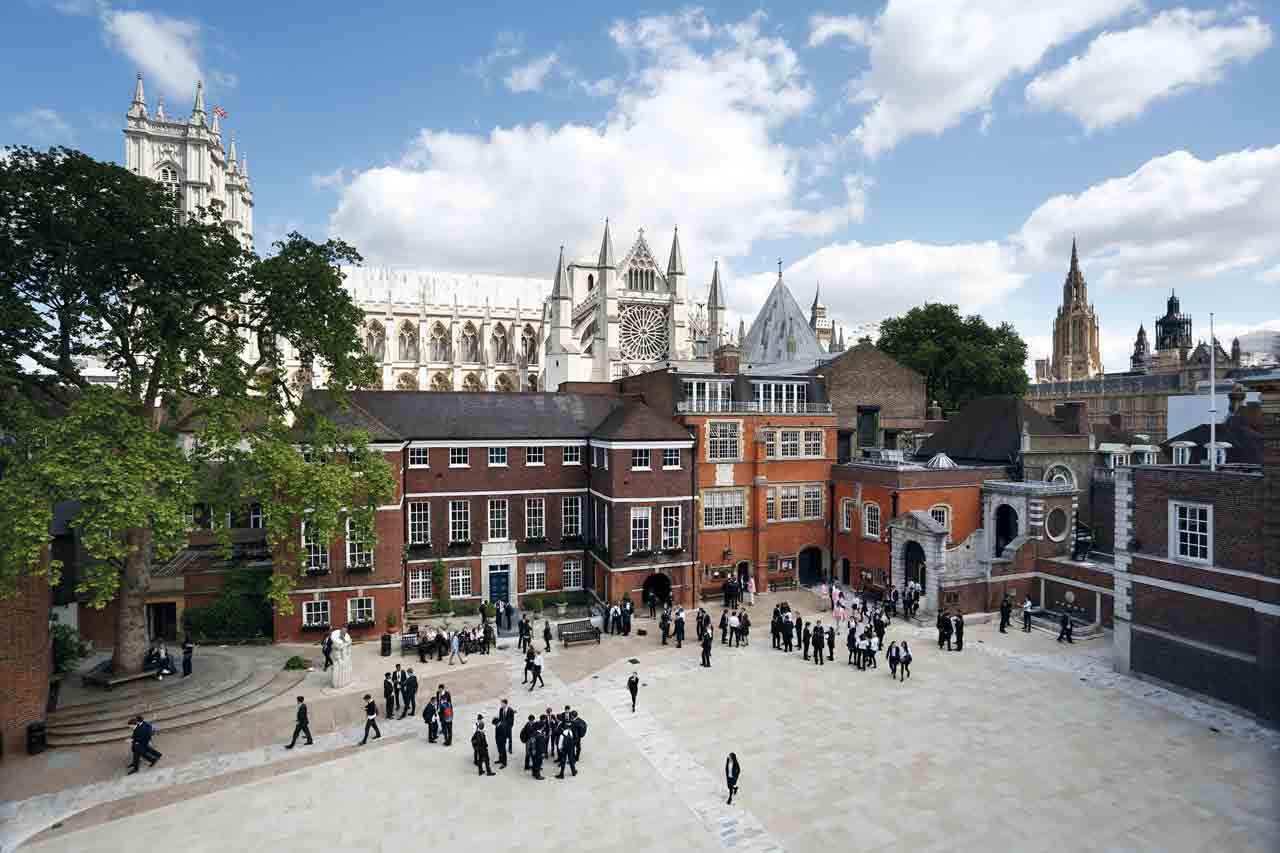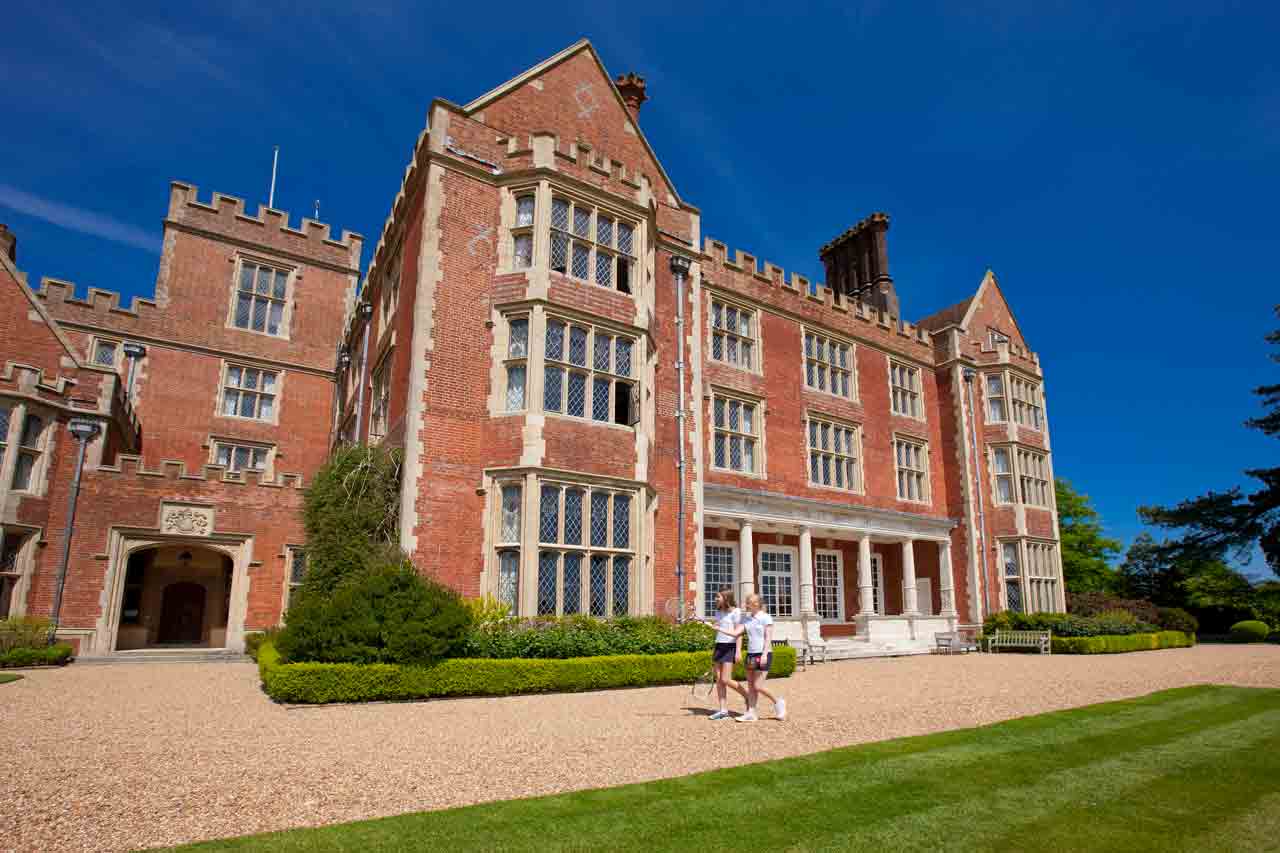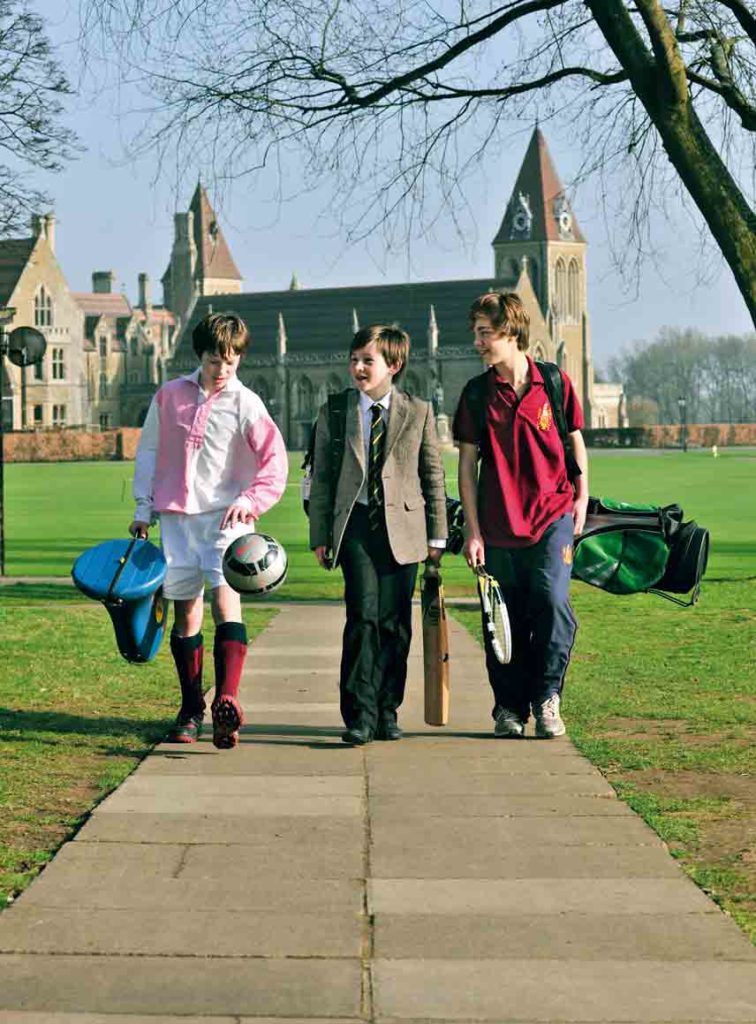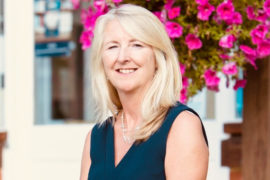Hard Pushed: A Closer Look at the British Education System
By
6 years ago
Are we failing our children? Is anxiety and stress killing their childhood? Are they too scared of failing to win? How do we compare to other countries? Educationalists, writers and academics give their verdict on the British education system. Victoria Lambert begins this series of articles:

More than half a million children attend British independent schools – more than at any time since records began in 1974 – according to the Independent School Council (ISC). Just over five per cent are from overseas, with their parents attracted to the traditional ethos of high academic achievement combined with excellence in sport, music, drama and other activities.
The best British independent schools have become so competitive – especially in cities such as London and Manchester – that entrance exams at 11 and 13 have been augmented by pre-tests at age nine or ten, as well as psychometric assessments. The City of London School is so oversubscribed that it has ten applicants per place in Year 6. Benenden, Kent has a four-year waiting list. Westminster School, London asks parents to apply when their child is in Year 3 to sit the pre-test in Year 6.

Westminster School, London asks parents to apply when their child is in Year 3 to sit the pre-test in Year 6
There are over 4,000 tutoring firms drilling young children for these tests. In 2013, the online education resource EdPlace estimated that British parents spend up to £6 billion a year on private lessons.
The rewards are high, however. The ISC says independent schools enter a disproportionate number of pupils for most STEM subjects and all modern foreign languages who perform comparatively better in these exams than state school pupils. At chemistry A-level 54 per cent of independent schools’ entries were awarded A* or A compared to 30 per cent of state entries.
Research carried out by ISC analysing the value added by independent schools to ‘soft skills’ has shown that pupils may be more open to learning, more able to recover from setbacks, and more conscientious. And pupils from nine public schools – Charterhouse in Surrey, Eton in Berkshire, Harrow in London, Merchant Taylor’s in Hertfordshire, Rugby in Warwickshire, Shrewsbury in Shropshire, St Paul’s in London and Winchester in Hampshire – are 94 times more likely to reach the top elite positions in society than those from other schools, according to a 2017 study by the London School of Economics.
But in our drive to turn out perfect children with impeccable outcomes, are we forgetting about their moral character? Research from the University of Birmingham and the Jubilee Centre in 2015 concluded that 80 per cent of teachers found that the British assessment system ‘hinders the development of the whole child’. Most of the teachers it surveyed claimed that exams have become so pervasive in schools that they have crowded out other educational benefits.

Benenden, Kent has a four year waiting list
The British way is not the norm. In Australia and South Africa, children start school and learn to read at six or seven. ‘The USA is more personality driven,’ says Nathaniel McCullagh, founder and managing director of education consultancy Simply Learning Tuition: ‘Grades are important, but they look at the student holistically. Greater emphasis is placed on non-academics, personal character and aspirations.’
In Scandinavia, especially Finland, education is far gentler than here. ‘Streaming of classes is illegal,’ says McCullagh, ‘junior school starts later [on average at seven] which allows children to spend time learning to relate to each other, develop dexterity and creativity through play, art and basic writing. They learn how to build relationships, and develop social, leadership and interpersonal skills.’
Ben Evans, headmaster of Edge Grove School, Hertfordshire, agrees: ‘Most other countries manage the education process better than us. In Scandinavian countries, the youngsters catch up with UK children but in the meantime, have enjoyed greater freedoms. The quality of education provided by our prep and senior schools
is world class and getting better all of the time, but it is the transition phases that need to be managed more carefully and this is where other countries unfortunately have the upper hand.’
Professor Jari Lavonen explains how its done. ‘There is a global trend for accountability in schools with success or failure determined by standardised tests and external evaluations,’ says the head of the department of education at the University of Helsinki. ‘In Finnish primary and lower secondary schools another direction has been chosen: trust based on the professionalism of teachers. An important pre-condition for trust is the high quality of teacher education and a broadly supported overall strategy.’ Moreover, adds Professor Lavonen, ‘because there is no national-level heavy testing, teachers are not tempted to concentrate on easily measurable skills.’
It’s not that parents of other nationalities are less ambitious for their children, says Bernd Westermeyer, headmaster of Schule Schloss Salem in southern Germany – but they value schools in a different way. ‘Parents compare schools, regardless of where they live. However, to compare only numbers or pass rates to top universities reduces schools to “academic factories”. Schools like Schloss Salem aim for a holistic education and offer both a demanding academic programme, but also develop pupils’ characters by challenging them in many ways.’
German boarding schools such as Salem are not easy-going, he warns, but are consciously more liberal than UK independent schools. ‘Looking back at Germany’s difficult history, Salem aims at educating critical democrats who take responsibility without being asked. We challenge our pupils by confronting them with freedoms that suit their age.’
This is quite different to the expectations placed on a British child, where there is pressure on all sides to be perfect, says Mark Turnbull, headmaster of Giggleswick School, Yorkshire. ‘We are quick to blame social media but less willing to acknowledge how our education system is placing excessive pressure upon teenagers. I would ask, are we really creating the mental health epidemic? Are we teaching to instill a love of learning or, too often, are we forced to coach in order to meet our own performance targets?’

Charterhouse, Surrey
Colin Baty, Head of Bedales Prep School, Dunhurst in Hampshire is concerned about resulting anxiety. ‘The pressures experienced by many 11-plus and CE pupils is a worry, with concerns expressed about anxiety felt by children as young as six.
‘I am also concerned that the national curriculum and the associated qualification regime is increasingly prescriptive, dull, narrow and inadequate for any education that seeks to help young people question, challenge and make mistakes as they become enthusiastic and independent learners. Young people are sponges for learning, and we have a responsibility to better serve that appetite.’
He adds: ‘A 2015 Demos publication, Mind Over Matter, found that pupils in the UK lose confidence and are less happy as they move through school, with a third of final year students believing their school is focused only on preparing them to succeed in exams, rather than in life. The Demos work finds a relationship between stress in young people and orthodoxy of exam assessment: and to seek to address the former without looking at the part played by the latter is shortsighted.’
Peter Howe, principal of UWC Atlantic College, Wales adds: ‘Students need to feel valued as people not just by their grades. Too much of students’ self-esteem is connected to their grades and the “perfect” CV, which results in them becoming fearful and fragile.’
Many teachers increasingly express their concerns that a rise in tutoring is part of the problem, putting stress on younger children who maybe attaining places at schools with standards they may find hard to sustain. Rupert Syme, who runs the tutoring service Lionheart, agrees, believing that we are losing perspective on what matters. ‘There is a place for tutoring if channelled correctly. If your child is really struggling with maths GCSE for example, or needs help to unlock potential. Children shouldn’t be over-tutored for exams to get into schools which won’t suit them. It can lead to exam panic and a lack of self-esteem.’
What could we do differently? Bedales Prep has no uniform and teachers and pupils are on first name terms. Head, Colin Baty explains that, ‘These are symptoms of an ethos that values the individual, rather than as raw material to be moulded to fit their chosen senior school. Bedales doesn’t use Common Entrance, the assessment for entry is more about ensuring a good cultural fit.’
Silas Edmonds, acting principal at Surbiton High School, London believes it’s about achieving equilibrium. ‘In the past, parents might have accepted their child’s unhappiness if they thought it led to A grades. Now they see that children who have a more balanced education, with less pressure, can also achieve good results.’
He adds: ‘Busy is good if it is purposeful. We’ve looked hard at homework, for example. Children have long days with after-school and weekend activities so we’ve reduced the amount we give. For six weeks a year no new homework is set for Key Stage 3 children so they can catch up or take a break.’
We need to slow down, says Mark Turnbull. ‘Education must keep adapting to meet the needs of our increasingly fast-paced modern world, but we need to give children the time they need to think, explore, grow and achieve.’
And attitudes need to be adjusted, says Howe: ‘It would be wonderful if UK universities placed more value on the quality of the person they are recruiting, instead of the quality of that person’s brain as recorded in academic results. Our world’s problems will be solved by community builders with sound values and moral compasses.’
READ MORE: Protesting the Pre-Test – The Problem with Senior School Entry Process | The Pentathlon: A Thoroughly Modern Sport



